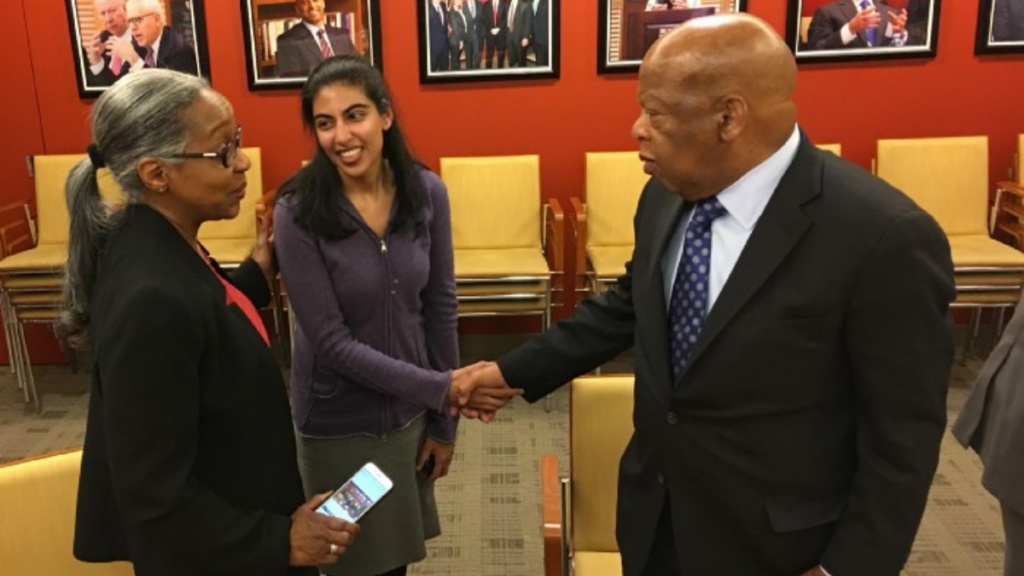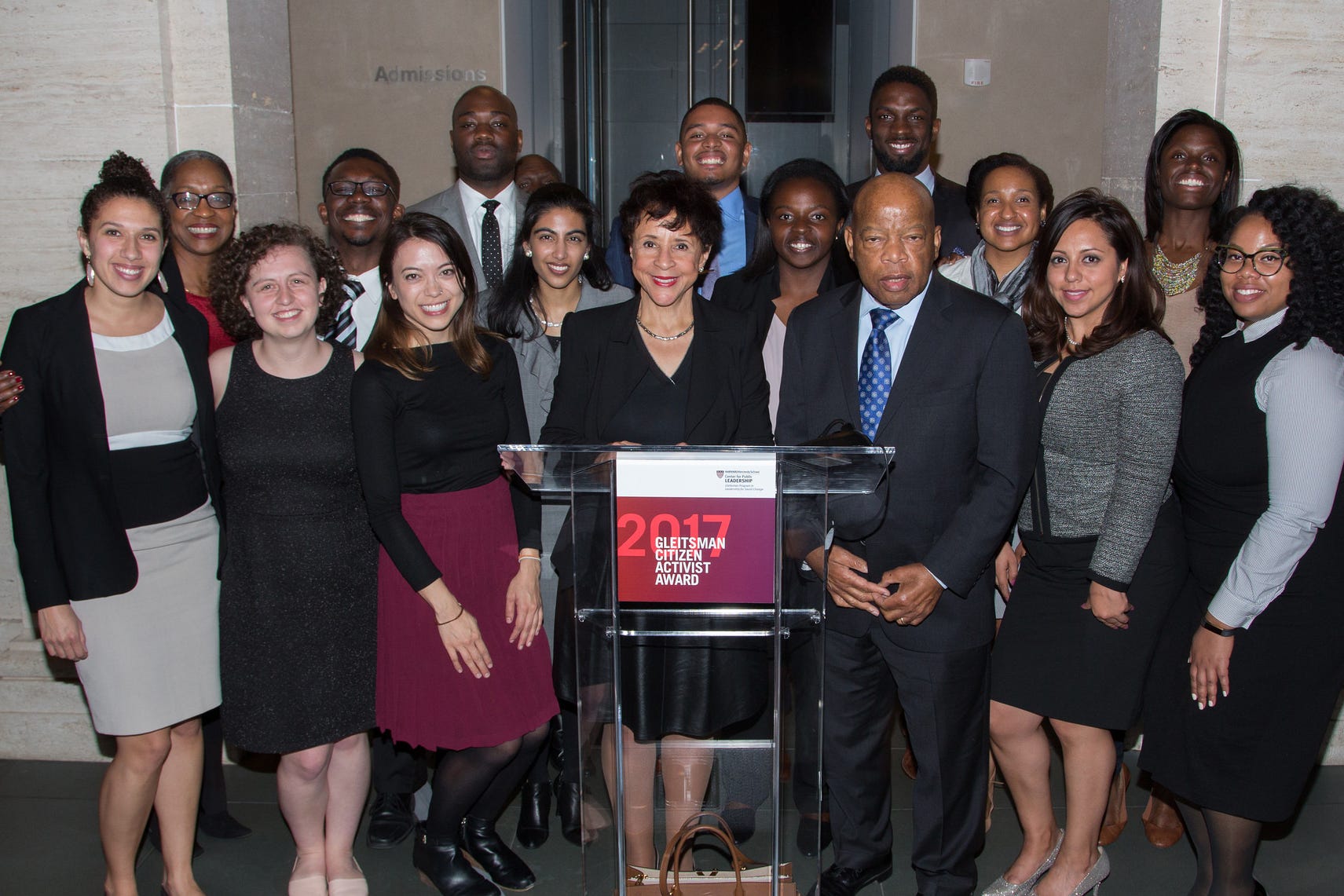When Congressman John Lewis visited Harvard in 2017, he left us autographed copies of his graphic novel March. I knew exactly what to do with my copy. Putting it in the mail, I sent it to one of my former students Khoryel for her son Khobie. As a family, they are one of the bright lights of my life, and as an educator, I hold a deep conviction that “good trouble” should be at the heart of how we teach and parent in America.
Khoryel sent me back a video of Khobie jumping up and down when he opened the present. In that video, she captured a feeling so many of us have about Congressman Lewis: he is there at precisely the moments we need him, inspiring delight through his accessibility.

Today, on the anniversary of the Voting Rights Act of 1965, there are many reasons to feel concerned and even afraid. We have lost Congressman Lewis and other giants like Reverend C. T. Vivian at a vital time in our country’s political evolution. We are navigating questions of how to ensure equity and integrity in our elections in the midst of a global pandemic. We face an incomprehensible flurry of state-level laws, administrative choices, and resourcing decisions that make it challenging to uphold the intent of the Voting Rights Act.
But Congressman Lewis modeled the antidote to the darkness we now face. In his constant presence, his humility, and his insistence on fairness in the personal and legislative realms, he taught us that this work becomes powerful and even joyful when we do it all together.
Across race.
Across generations.
Across geography.
Not simply in the halls of Congress or in the formality of the voting booth, but also in the organizations we lead and the ways we create opportunities for others in our individual actions and choices.

If every person who has taken a selfie with John Lewis — every person with a copy of March — every person who read his final written words in the New York Times with grief and wonder — if all of us do our part, we can go beyond simply honoring the Voting Rights Act of 1965. We can eclipse it with norms, laws, and enforcement that prove that democracy and diversity are not simply compatible but inextricable.
Congressman Lewis is a spirit who lives on in all of us. In his words, actions, and even ubiquitous selfies, he never claimed that this was a task for any one person alone.
It is a task for all of us.
Today, on the anniversary of the Voting Rights Act of 1965, let’s honor John Lewis by giving him a voice in each of our hearts as we march on towards November.